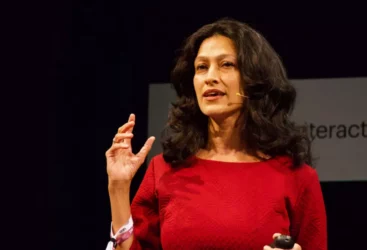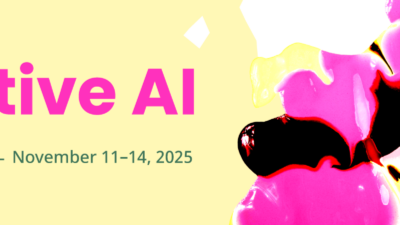Download the conference program
As AI reshapes our worlds, who decides its future—and who gets left behind? Welcome to Cooperative AI, the first global conference on cooperatives and artificial intelligence, staged during the United Nations’ International Year of Cooperatives.
Throughout history, societies have grappled with how to balance technology with social equity. In the early 19th century, the Luddites resisted industrial machines—not out of opposition to technology itself, but in protest against how it was used to undermine workers’ livelihoods and concentrate power in the hands of factory owners. A few decades later, the Rochdale Pioneers laid the foundation for cooperative enterprise, offering a model for democratic ownership in a speedily industrializing world. Now, at another turning point, with artificial intelligence advancing in ways that are both pervasive and uneven, this conference asks: Will AI be governed by a few, or can worker-led models inspire its development to serve the many?
For too long, dominant tech firms have prioritized corporate profit over the public good. Their AI systems often reflect narrow interests, sidelining voices from the ‘Global South’ and other systematically oppressed groups.
What role can cooperatives play in this context? How can co-ops integrate emerging AI technologies without compromising, but instead advancing, their values and principles? Building on these questions, the conference will review how the international co-op network, social movements, unions, and solidarity economy initiatives can partner with policymakers to design programs that support workers. This includes creating new roles that integrate with AI-driven workplaces or, in some cases, assisting workers transition into more sustainable industries. Beyond adaptation, cooperatives can serve as bridges between civil society and AI, creating spaces for participatory technology development. As a deeply connected worldwide movement, co-ops can move beyond discussions of AI confined to academic echo chambers. With youth-driven and women-led “think-and-do hubs,” they can convene communities to imagine solutions tailored to specific local needs.
But to be able to do this, cooperatives should draw on their historical roots in driving radical change. If democratic enterprises are to play a meaningful role in shaping this future, they must face their own identity and commit to taking clear stands on planetary crises—whether the climate emergency, protracted wars, deepening divisions around racial justice, gender oppression, labor exploitation, or the hype and growing influence of AI controlled by unaccountable actors.
At its core, this conference emphasizes the potential of collective enterprises to actively constitute the futures that lie ahead. The cooperative movement could take on roles as ethical guardian, ensuring AI development aligns with principles of solidarity and inclusivity; community educator, demystifying algorithmic systems and their pressing implications for the public; policy influence, building legislative frameworks that aid workers in the transition; bridge-builder, setting up international partnerships between solidarity-based businesses and critical artificial intelligence developers; and steward of digital commons, actively using and promoting open-source AI tools.
Beyond merely defining their roles, cooperatives must seize the narrative from private equity visionaries and Silicon Valley leaders who have co-opted the language of “worker ownership” and “cooperative AI” to serve their own agendas, reclaiming it as a force for justice and collective benefit.
To bring these ideas to life, this four-day event features workshops, film screenings, plenary sessions, interactive panels, and storytelling sessions. The conference also includes a Cooperative Futures roundtable and lightning talks showcasing case studies of cooperatives already adapting to the changes brought about by AI. It focuses on raising questions rather than offering definitive answers, bringing together cooperators, researchers, technologists, policymakers, activists, artists, labor organizers, and legal experts. Cooperative AI faces the tension between digital innovations, ownership, and equity through curated streams that turn challenges into strategies, including:
– Solidarity Tech and Countervailing Platform Power considers approaches that contest exploitative platform dominance and harmful AI applications, including militarization. It centers on passing worker-centered legislation, embolden unions, and scaling platform cooperatives. By promoting international agreements to curb autonomous weapons and encouraging ethical guidelines for artificial intelligence systems, the session calls attention to how diverse actors—from the policy space to social movements, unions, and cooperatives—can converge to democratize work, prevent power concentration, and steer AI development toward peaceful and equitable outcomes.
– AI and the Digital-Age Overhaul of Cooperatives and Social Enterprises explores how AI can improve decision-making and streamline operations while upholding cooperative and solidarity economy principles and values. Rather than relying solely on big tech solutions, the stream challenges cooperatives to experiment, for example, by incubating content moderator collectives, jointly building sovereign data centers, and fighting for algorithmic transparency. It also calls on co-ops to become public champions of participatory artificial intelligence systems, co-designed especially by women and youth.
– Digital Commons, Decentralized Cooperative Governance, and Cooperative Tech Alliances promotes the collective management of technological resources. By emphasizing open-source and interoperable infrastructures, peer-to-peer networks, and participatory approaches, these strategies enable self-governance, mutual aid, and sustainable innovation. It practically probes synergies among platform co-ops, digital commons, and decentralized autonomous organizations, highlighting federated structures, blockchain, inclusive decision-making, shared digital infrastructure, and pathways to sustainable funding. Cooperative federations like ICA and CICOPA and tech networks such as Patio can support these efforts, particularly in the ‘Global South,’ by leveraging tools like cooperative data trusts, peer production licenses, and decentralized governance. Additionally, the stream also explores whether the open-source model is inherently more conducive to innovation than its proprietary counterpart.
– Platform Capitalism, Gender, Migration, and Climate Crises queries how AI-driven platforms affect migrants, women and refugees, including those displaced by environmental collapse, through surveillance, automated border control, restricted services, and the commodification of their data for profit. It features cooperative approaches that prioritize the rights and agency of women and climate refugees, interrogating how cooperatives can counter harmful machine learning practices and advance a radical political agenda.
– Invisible Labor, Rights, and Digital Organizing analyzes the hidden labor sustaining digital economies, particularly the AI-powering ghost work and platform work, and the need for recognition, compensation, and regulation. It examines how innovation, when integrated with collective action and shared ownership, can support labor rights, ensure accountability, and foster equitable AI policies within a broader digital solidarity economy. By emphasizing transparency, accountability, and democratic participation in cooperatives, the session underscores how systemic change is driven not by technology alone, but by workers themselves, shaping a future where digital labor is fair.
– Lessons in Business Resilience analyzes the specific governance, financial, and market challenges faced by platform cooperatives, while drawing critical lessons from past failures and successes to guide future developments. The stream emphasizes the importance of building robust legal frameworks, developing sheltered markets, advancing cooperative education, implementing self-monitoring mechanisms, and strengthening federated cooperative networks to move from passing vibes to long-term viability.
*
Join us in Istanbul, with the magnificent Hagia Sophia, the Bosphorus, and the historic Dolmabahçe Palace as your backdrop, to map out how cooperatives can rise to the challenges and seize new opportunities presented by artificial intelligence. Cooperative AI is convened by
Prof. Trebor Scholz (Platform Cooperativism Consortium/The New School), and Stefano Tortorici (Scuola Normale Superiore). The conference is hosted by Needsmap.
Recommended Hotels
We’ve selected a few hotel options. Attendees are responsible for booking and payment.
Elite World İstanbul Florya
Gültepe Mahallesi, Şehit Zafer Kızıltaş Sokak No: 1, Florya E5 üzeri, Küçükçekmece, 34295 İstanbul, Türkiye
Ramada by Wyndham Istanbul Florya
Besyol Mahallesi, Birlik Caddesi No: 10, Sefaköy, Küçükçekmece, 34295 İstanbul, Türkiye
Crown Plaza Florya
Yeşilköy Halkalı Caddesi No: 95, Florya, 34153 İstanbul, Türkiye
Renaissance Polat İstanbul Hotel
Yeşilyurt Mahallesi, Sahilyolu Cad. No: 2, Yeşilyurt, Bakırköy, 34149 İstanbul, Türkiye
Participants
-

Giuseppe Guerini President of Cooperatives Europe
-

Abeba Birhane AI accountability researcher and leader
-

Ana Margarida Esteves Faculty Fellow, ISCTE Lisbon
-

Kaya Genç writer and journalist
-

Payal Arora Professor of Inclusive AI Cultures at Utrecht University and co-founder of the Inclusive AI Lab
-

Rafael Grohmann Assistant Professor of Media Studies, University of Toronto Scarborough (UTSC)
